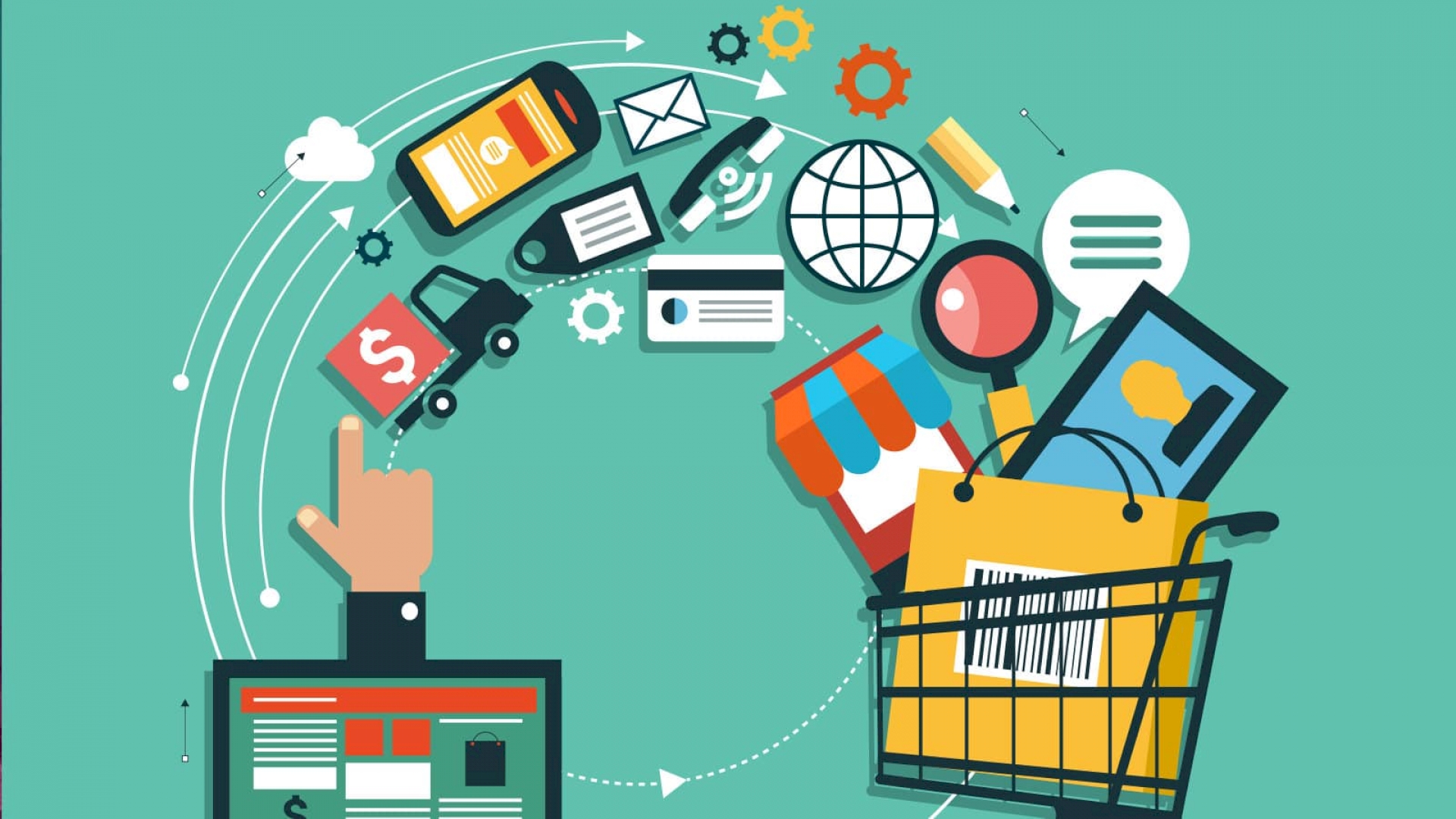In this pandemic era, we must be familiar with the term marketplace since it is becoming alternative solution for people to shop without leaving their home. Marketplace can be understood as a platform in form of website or even an application to facilitate trade of goods/services transaction online between seller and buyers. In a simple term, marketplace is a market, but it is held online.
Online trade system within marketplace is a form of Trade Through Electronic System (in Bahasa “PMSE”). PMSE is better known in term of e-commerce. Indonesian Government has issued Government Regulation Number 80 of 2019 on Trade Through Electronic System (GR 80/2019). GR 80/2019 define PMSE as any Trade in which the transaction is carried out through a series of electronic devices and procedures.[1]
GR 80/2019 become a reference for PMSE Business Players that must be obeyed. Business Players of PMSE is any individual person or business entity in the form of incorporated entity or unincorporated entity which may be in the form of Domestic Business Players and Foreign Business Players conducting business activities in the sector of PMSE.[2]
Business Players of PMSE can be categorized into 3 different type based on its’ activity, as follows:[3]
- Merchant
Merchant is any Business Player conducting PMSE, either using facilities that are directly made and managed or through facilities owned by a PPMSE, or other Electronic System which provides a PMSE facility.
- PMSE Provider
PMSE Provider is any Business Player which provides Electronic Communication facilities used in Trade transactions.
- Intermediary Services Provider
Intermediary Service Provider is any Domestic Business Player or Foreign Business Player who provides Electronic Communication facilities other than telecommunication providers and only serves as an intermediary in Electronic Communication between the sender and the recipient.
Marketplace provider is an PMSE Provider that provide an online transaction facility. For example, a well-known marketplaces in Indonesia are Tokopedia, Bukalapak, and Shopee. Whereas merchants are sellers that sell their goods through a marketplace. As for Intermediary Service Organizer only serves as intermediary that brings together seller and buyer, such as OLX, Carmudi, and Rumah123. The intermediary services provider will not be involved directly in trading transaction between the seller and the buyer. Certain social media that provides trade forum such as Facebook is also considered as intermediary services organizer.
The existence of marketplace serves as a solution for merchant to reach a very broad market scope without having to spend a lot of money. However, the existence of marketplace can also be misused by merchant to sell illegal goods.
Take a note that illegal goods are not only goods that are prohibited from circulating such as drugs, but also goods that do not have a distribution permit for food, beverage, and medicine. Goods that do not meet the license of Indonesian Standard National (in Bahasa “SNI”) and stolen goods are also illegal goods. Counterfeit products also considered as illegal goods, which we know are widely sold through online.
Related to illegal product in form of counterfeit goods that violates copyright, is regulated under Law Number 28 of 2014 on Copyrights as follows:
Article 10
Managers of business premises are prohibited from allowing the sale and/or reproduction of goods resulted from Copyrights and/or Related Rights infringements in the business premises under their management.
Article 114
Every Person managing business premises in all its forms who deliberately and knowingly allows the sale and/or duplication of goods resulting from infringement of Copyright and/or Related Rights in the premises that they manage as referred to in Article 10 shall be sentenced with a maximum fine of Rp100,000,000.00 (one hundred million rupiahs).
Then, what if illegal products are found and sold in marketplace, can the Business Player of PMSE be asked to be responsible legally?
Article 22 paragraph (1) GR 80/2019 regulates that if there are illegal electronic information contents within a PMSE, then the domestic PPMSE and/or foreign PPMSE, as well as the Intermediary Service Organizer, shall be held responsible for the legal consequences or impacts of the said illegal electronic information contents.
However, Business Players can be freed from such legal responsibility if he quickly acts to remove the electronic link and or illegal electronic information contents after gaining knowledge or awareness. This matter is regulated under Article 22 paragraph (2) of GR 80/2019:
Article 22 paragraph (2)
The provision as referred to in paragraph (1) is not applicable if the domestic PPMSE and/or foreign PPMSE in question quickly acts to remove the electronic link and or illegal electronic information contents after gaining knowledge or awareness.
Even though Business Player of PMSE should filter and monitor every content showed in their electronic system periodically in the first place, another effort for Business Player of PMSE can do is to provide a report page for user or people to report if any illegal products are found and sold within the marketplace.
So related to illegal goods sold by individual merchants, it can be ascertained that he will be held for criminal and civil liability. Whereas marketplace provider can avoid being held liable if it acts quickly to remove the illegal content after gaining knowledge on it. However, this is not applicable if the marketplace provider is proved to facilitate illegal goods trade, as ever occurs in the form of personal data trades through dark web. It is clear that the dark web organizer/manager who specifically sells illegal items can be charged with sanctions based on criminal law and sued by the aggrieved party.
DISCLAIMER:
Any information contained in this Article is provided for informational purposes only and should not be construed as legal advice on any subject matter. You should not act or refrain from acting on the basis of any content included in this Legal Update without seeking legal or other professional advice. This document is copyright protected. No part of this document may be disclosed, distributed, reproduced or transmitted in any form or by any means, including photocopying and recording or stored in a retrieval system of any nature without the prior written consent of SIP Law Firm.
For more information, please contact the Author:
 | R. Yudha Triarianto W, S.H., M.H. Associate Lawyer
email: yudha@siplawfirm.id phone: +62-21 7997973 |
[1] Article 1 Number 2 GR 80/2019
[2] Article 1 Number 6 GR 80/2019
[3] Article 1 Number 10-12 GR 80/2019
